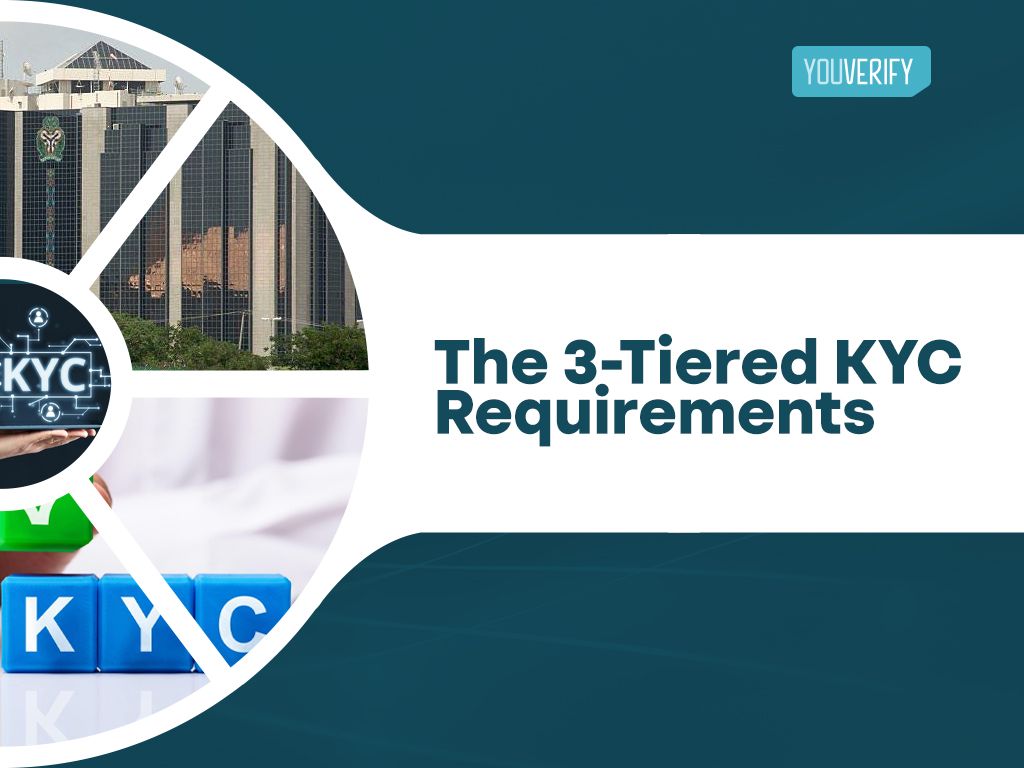The problem of exclusion of socially and financially disadvantaged individuals has persisted in the Nigerian banking framework with a large percentage of the population remaining unbanked. While this is not a new problem, the recent rapid adoption of technology has further worsened the situation necessitating innovative intervention. In response, the Central Bank of Nigeria (CBN) introduced the 3-tiered KYC requirements.
This article summarises the CBN 3-tired KYC requirements and illustrates how each tier profers to solve the pressing issues relating to the unbanked in Nigeria.
The Unbanked Situation in Nigeria
According to the Enhancing Financial Innovation & Access (EFInA), only 40% of adults in rural areas of Nigeria have a formal bank account compared to 71% of urban adults. Additionally, there are no bank branches, agents or ATMs situated in over 60% of rural communities across Nigeria.
Nevertheless, long before banking operations went digital, the CBN took steps to address this problem to expand the limits of financial inclusion in Nigeria. The ultimate goal was to capture the unbanked by relaxing the then-rigid Know Your Customer (KYC) requirements by simplifying it to a 3-tier system.
CBN’s 3-Tiered CBN KYC Requirements
The 3-tiered KYC requirements by the Central Bank of Nigeria are designed to facilitate flexible account opening requirements for “low-value”, “medium-value” and “high-value” accounts as defined by the guideline. However, the requirements are subject to upper and lower limits as the amount involved and the number of transactions performed increases.
Let’s take a look at each of the 3 tiers and what they entail:
1. Level 1: Low-Value Accounts
Low-value accounts, level 1, simply require basic customer information including their passport photograph, name, address, date of birth, gender, and phone number among simple identifiers. These accounts are subject to less scrutiny by bank examiners and can be opened at any branch of the financial institution or through banking agents. Additionally, no minimum amount is required for opening this type of account and the customer will be availed with conventional banking operations like ATM access and linking to mobile phone accounts. However, withdrawals are restricted to only the account holder, the accounts are strictly savings accounts and international funds transfers are prohibited. This is the main tier CBN intended for the majority of the unbanked populace.
Recommended - Requirements for Opening a Bank Account in Nigeria
2. Level 2: Medium-Value Accounts
Classified as level 2, medium-value accounts need to be opened upon face-to-face interaction at any branch of the financial institution. Customer information such as passport photograph, name, date of birth, gender, address and more are required. There is some flexibility in the process, permitting that the information may be forwarded electronically or presented onsite. As a final step, the customer must be verified against similar information in government-backed databases.
Similar to low-value accounts, these accounts are strictly savings and can be used for fund transfers within Nigeria only. However, the account may be linked to a mobile phone and no amount is required when opening such an account.
3. Level 3: High-Value Accounts
These are high-level accounts that require top-tier KYC procedures. When opening a high-value account, banks are required to obtain and verify the necessary KYC documents in line with the CBN AML/CFT regulation, 2009 (as amended) for opening accounts. Additionally, the account can be only opened in person at the branch of the financial institution and can be either savings or current. There is no minimum amount to open this type of account. Finally, there are no limits on cumulative balance.
Bottom Line
The 3-tiered level KYC requirements are mandated by law and non-compliant institutions will be sanctioned according to the provisions of the law and regulations. The policy aims at impacting the unbanked, making traditional banking operations appear more attractive and appealing through fewer KYC requirements.
Read the official 3 tired KYC requirements release by the CBN for more information.
